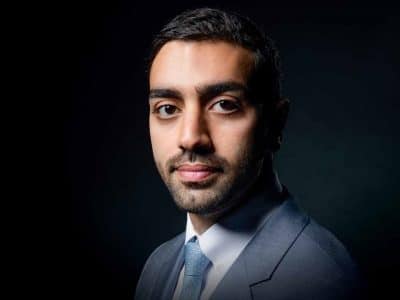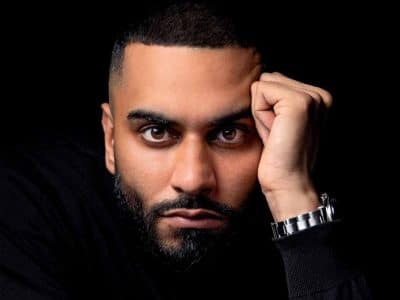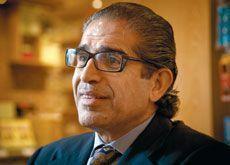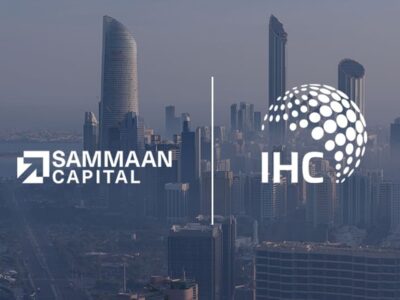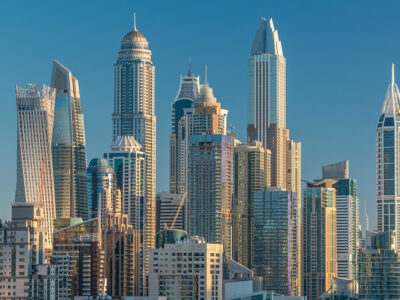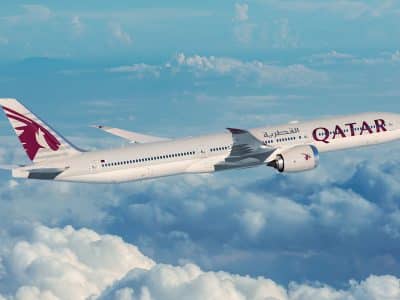He’s just spent $10m on Dubai’s newest mall but does he regret his decision?
Faisal Jawad should be nervous. The Bahraini businessman has spent more than $10m on a series of shops in the newly opened Mirdiff City Centre and he’s just about to officially launch his latest franchise, the British homeware store Lakeland. At the same time Dubai’s latest shopping mall is eerily quiet, save a few shoppers who have come to find out what all the fuss is about.
“People got disenchanted with repeats. How many new ladies fashion brands can you bring to the region? How many more cafes can you bring? It’s become saturated. In a mall, the owners and the developers all like to see a brand new category bought in to make it more interesting,” he says, clearly optimistic about Lakeland.
It was Jawad’s British wife, who used to stock up on Lakeland products during trips home, that persuaded him to bring the franchise to the region. So far he hasn’t regretted the move. Although the shop has only been open a few weeks, sales are up 75 percent compared to projected figures and he is already talking about expanding the brand across the Gulf. “We will grow the Lakeland brand very substantially in the next few years. I think we see ten stores in the next three years in the GCC,” he says. “But that does depend very much on location. The brand is a premium brand in the UK and it requires prime position in the GCC,” he says.
Lakeland is just one of many franchise rights Jawad owns in the Gulf and India. The company also counts the likes of The White Company, Monsoon, BHS and Costa Coffee amongst its stores.
Jawad’s father established the family business in the 1950s when he opened the Jawad Cold Store, a supermarket that sold frozen goods to expats living in Bahrain. The shop also appealed to the national community, mainly for its novelty factor. “Before the 1960s the people in this part of the world didn’t buy anything frozen to cook. My mother never cooked a single frozen product in her lifetime so I think in those days it was a novelty to go into a shop and buy a frozen product,” explains Jawad.Although the firm’s background is rooted in supermarkets and convenience stores (it currently has 45 operating across Bahrain), its biggest revenues come from its fashion retail stores, which started in 1987 when the group introduced BHS to Bahrain. Together Jawad’s father and elder brother continued to grow the family firm before he took over as managing director several years ago.
Jawad credits much of his business success on the brands it represents, which are predominantly from the UK. “We’ve always regarded ourselves as pioneers in bringing something into the market.”
Today, the group has a turnover of $500m and a workforce of 6,500 but both figures are expected to rise as Jawad looks to expand into new markets. Two years ago he launched a string of fast food outlets in India, including Chili’s, The Great Kebab Factory and Papa John’s as well as a number of fashion outlets.
In addition to expansion in India, the group is also eyeing less mall-saturated markets such as Syria and Lebanon. “I think the development of malls will be very restricted in the next five years, particularly in the Gulf region. The offering of malls here [in the Gulf] has reached its peak,” he explains.
“They’ll be quite a few malls coming up in Syria, Iraq, Lebanon and Egypt. We have plans to be in Syria. We have already made some in-roads into that. By the middle of 2011 we should be in Syria. We also have some in-roads into the northern part of Iraq [a move which will] hopefully happen sometime in the course of this year.”
His expansion plans will require little investment; Jawad estimates he’ll need around $2m for each country. “It’s going to be very low profile, our test market there. We’ll [invest] very little because the market is very small, [around] $2m. I think we’re looking at about half a dozen shops in Syria to begin with and maybe about three to four in northern Iraq.”
Like many Gulf retailers, Jawad bet high on Dubai’s continued growth as a shopping destination and several years ago committed millions of dollars to fit out 20 new outlets in Mirdiff City Centre. Today that same market is quite different. In January, for example, Dubai Shopping Festival noted that retail sales during its annual sale period declined by two percent.”This year we will end up opening 40 stores plus, we opened 20 here in Mirdiff but we signed up to open in 2007 before the crash happened. In terms of capital expenditure and expenditure on the stores I think we’ve spent around $10m but of course our growth is a function of the market reality.”
One of Gulf consumer’s biggest complaints is that prices in this region are typically a lot higher compared to their western counterparts. Jawad says the Dubai Lakeland prices are around 15 percent more than the recommended retail price (RRP) in the UK but recognises shops in this region often charge Gulf consumers up to 22 percent more for the same product.
“I think the window is anything between 12-22 percent above the UK prices. It is quite high but it’s a function of really how much we are getting it at,” he explains. “If something in the UK costs £10 for example, it depends how much they going to sell it to us. If they give it to us for £8 there is no way we could sell it for £10,” he adds.
He also cites the British pound, which has continued to fluctuate in value against the US dollar (which the majority of Gulf currencies are pegged to) as another reason for price discrepancies. “Six months ago we knew we were going to open Lakeland, Hobbs, Adams and Monsoon so we went to the banks and said ‘I want to buy $5m [of stock] secured at this rate… The products here we have on the shelf were bought when the pound was high,” he adds. When asked if he would lower the prices due to the decline of the pound in recent weeks, he doesn’t sound as confident. “People never really notice when the price goes down,” he shrugs.
A subject he is slightly more concerned about is the region’s investor sentiment. Back in 2005 the firm had a big expansion drive in place that it planned to fund through an IPO. Ahli United Bank, Bahrain Islamic Bank and Standard Chartered were selected as receiving banks but the plans were later scrapped. There have been no whispers of an IPO since and Jawad blames his decision on the region’s immature investor market.
“The Gulf region is not a very mature market when it comes to IPOs particularly when it comes to IPOs of companies that are actually in business… People buy shares because they heard that a friend or cousin bought shares,” he explains. “Some of the markets, for example Bahrain, the shares that are exchanged on a daily basis are very minimal. People sit on shares for 20-30 years – that doesn’t happen in the West.”
He claims to have lost little sleep over the stalled IPO, instead sourcing funds through other means. “When you do an IPO you do it for a reason,” he says. “We funded it with serious bankers in the region. We also talked to our suppliers, told them that funding is an issue [and asked if] they want to share part of the funding.”
